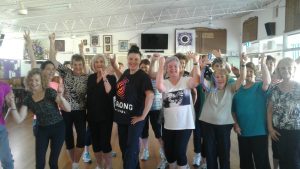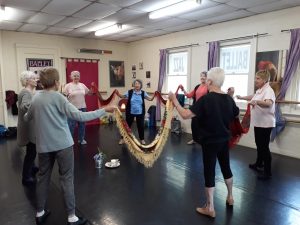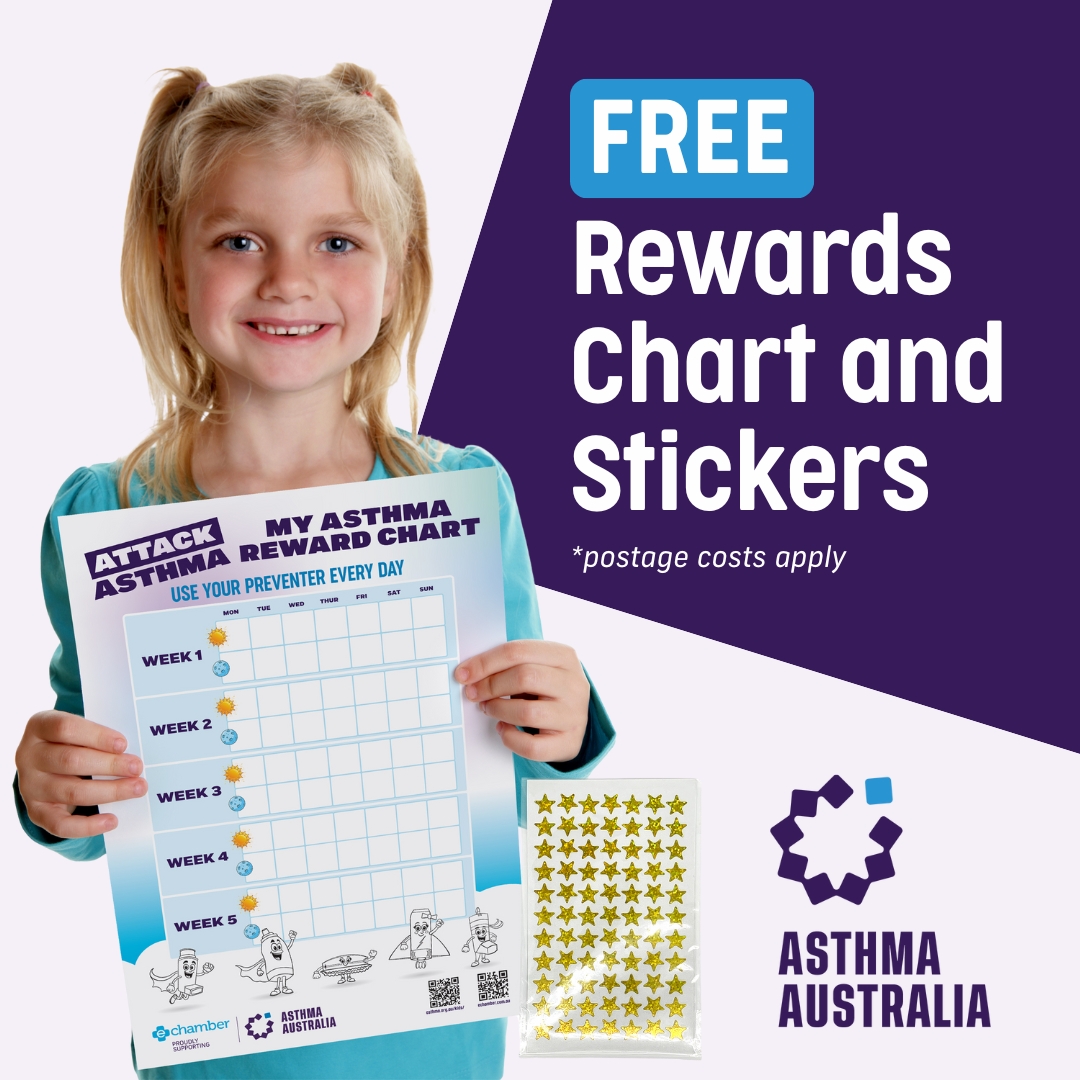
For proud Melbourne grandmother Judy Jensen, an active exercise regime that includes deep breathing, as part of her overall asthma management, has worked so well that her respiratory specialist won’t be booking her a check-up for at least three years.
Along with her dedicated use of preventer and reliever, exercise is an enjoyable element of Judy’s lung care. It gives her the vitality to do volunteer work and chase after her grandson.
Judy grew up with what doctors thought was bronchiectasis. But it was only as an adult that her trouble breathing was correctly identified as asthma. From there, with the correct advice of doctors, her life changed for the better.
“It wasn’t until I was an adult in my 30s and 40s that I started getting more chest infections. It seemed to happen more after the birth of my third child,” she explained.
“I used to get about one every winter, but I was getting progressively more… so I was sent off to a respiratory specialist who questioned if it was asthma or bronchiectasis… and that’s how the diagnoses of asthma came about.”
Since then, with guidance from her doctor and specialists, along with regular exercise, Judy’s asthma has been under control. Her favourite activities include swimming, Pilates, walking and ‘Wu Tao.’
“Before lockdown, I used to swim laps regularly, at least every second week… and I guess I’ve been doing Wu Tao for about four years – and there’s a lot of deep breathing involved with that.” Judy explained.
“I enjoyed swimming, and I also knew it would be good for my breathing, so that was a motivator with that.
Wu Tao is an exercise using low-impact dance moves and Chinese health philosophies. 
“With Wu Tao, each dance is connected to emotion, according to Chinese medicine. It involves a lot of deep breathing, and also aims to open up the circulation systems of the body. So, circulation, deep breathing and movement – I really think that that has helped me as well,” Judy said.
“I would swear by the fact that it has helped my asthma, and my physical wellbeing.
“Plus doing Pilates has kept me strong and active enough to play on the floor with my grandson and pick him up when he runs at me.”
Before the pandemic, Judy had regular specialist appointments, including breathing tests. Living in Melbourne, that was all put on hold for two years due to the lockdowns. But luckily she was able to continue her regular exercise – mainly Pilates and Wu Tao via zoom. When she was finally able to return to her specialist for a late breathing test in February, the results showed great improvement.
“I try to walk daily. I use preventer and reliever as prescribed by my doctors,” Judy said.
“My asthma medication has also been reduced this year – after two years of not seeing a specialist.
“I was discharged from having to return to that specialist clinic. They said maybe in three years they’ll call me back to check my progress.”
This positive outcome comes despite Judy having contracted COVID-19 in early January.
Judy’s success shows how exercise and breathing techniques can complement usual asthma care. Her improved breathing has in turn led to a reduction in medical visits and medication use. Overall, better breathing has improved Judy’s quality of life.
Better breathing is the topic of a free online class being hosted by Asthma Australia and featuring Senior Respiratory Physiotherapist Janet Bondarenko. For details about the online class, click here.
“For those who live daily with breathing challenges like asthma, breathing colder air through winter can be difficult.” Ms Bondarenko explained.
“The cold dry air can irritate your lungs and lead to tightness in the chest, trouble breathing, wheezing and coughing, and increases in mucus. Excess mucus sitting in your lungs can then lead to chest infections.
“The online class will help people understand their breathing challenges, including asthma. Simple exercises can help clear excess mucus from the lungs and may reduce the risk of chest infections. I’ll present some practical and effective strategies to help us all stay well over the colder months.”
For Judy, making sure she exercises – including her lungs – will remain an important part of her asthma management.
“It has emotional and physical benefits – and I love it.”





 1800 278 462
1800 278 462



